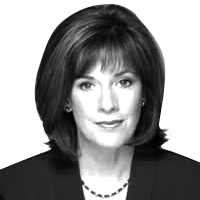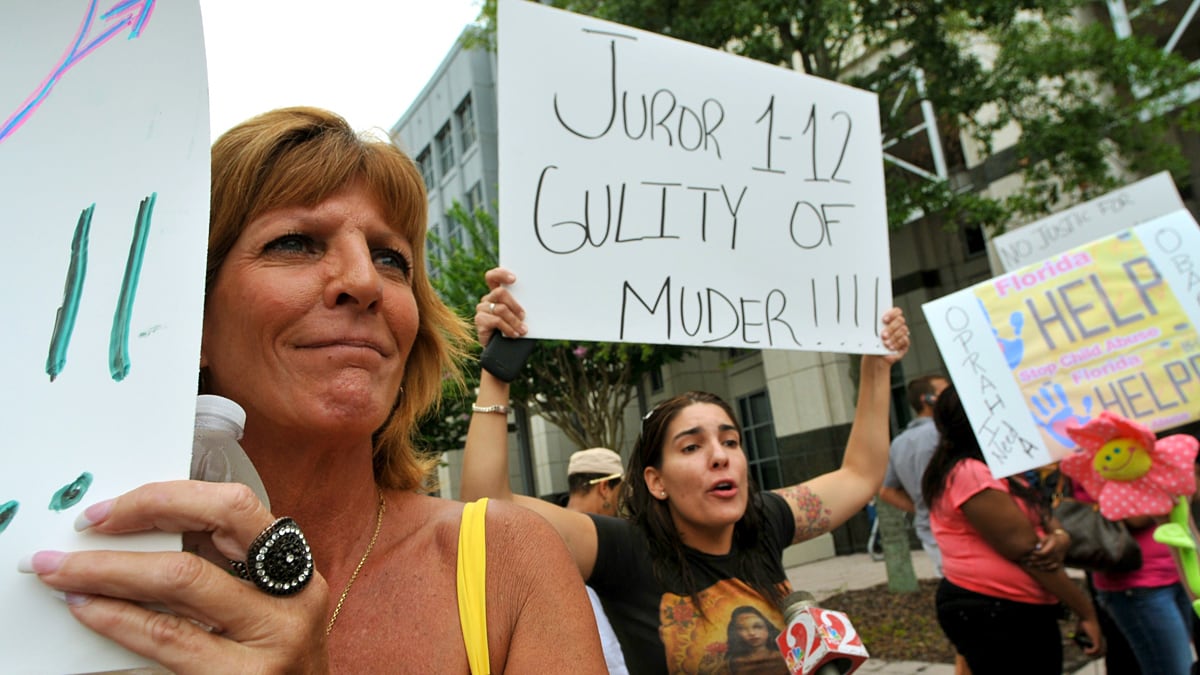The 17 men and women from Pinellas County, Florida, were chosen by sheer luck of the draw to sit in judgment at one of the country’s most notorious murder trials. And when these jurors rendered their not-guilty verdicts in the first-degree murder case against Casey Anthony, shortly after 2 p.m. on July 5, their lives changed forever. Now they say they feel like prisoners in their own homes.
The statistics were stark: After a trial that lasted 33 days with testimony from nearly 60 law enforcement, medical, and character witnesses, and dozens of pieces of evidence to take into account, the sequestered jurors deliberated just 10 hours and 40 minutes before reaching their decision. Public indignation was immediate and vitriolic, both outside the Orange County courthouse in Orlando and on Internet sites that had been demanding “Justice for Caylee” since Anthony’s 2½-year-old daughter first disappeared in June 2008. The media, especially breathless cable-TV personalities, repeatedly reported on the post-verdict outrage—which, of course, stoked more anti-juror animosity.
Just two jurors have appeared on camera to explain their views on the trial: juror No. 3, a 32-year-old single female nursing student, and a 50-ish male alternate who did not participate in the deliberations. Juror No. 2 granted an interview to the St. Petersburg Times only after it was agreed he could remain anonymous, as he feared identifying himself could bring harm to his wife and his two young children. The jury foreman also requested anonymity and then granted a brief interview to Fox News. (The message from all was the same: as there was no way to tell exactly when or how the child died, they had “reasonable doubt” about Casey Anthony’s guilt.)
ADVERTISEMENT
Now the jurors’ identities have been released to the public under Florida’s sweeping Public Records Law. And that has many—from Chief Judge Belvin Perry, who presided over the Anthony trial, to members of the jury—afraid the “Justice for Caylee” forces will launch a vigilante campaign against them.
Ordinarily in the Sunshine State, jurors’ names are automatically released to the public soon after the verdict. But as Judge Perry wrote after the Anthony decision, “It is clear, the jurors in this case face the possibility of substantial injury if their names are immediately made public.” The judge allowed the media a hearing on the immediate release of the names but he then took the extraordinary step of declaring a three-month “cooling-off period” to let the angry anti-jury passions die down. That hiatus expired Oct. 25.

In a powerful 12-page ruling, Judge Perry wrote:
“No one [at the hearing] spoke for the jurors and no one provided evidence concerning the jurors’ safety or privacy.” Perry wrote of the “alarming circumstances surrounding this case” and the need to “protect the safety and well-being of the jurors.”
Some members of the Anthony jury—chosen from the Tampa/Clearwater area, 100 miles from Orlando—have already called local sheriff’s departments to ask for protection from threatening outsiders and the media. One older female juror who worked in a grocery store to supplement her retirement income quit her job and went into hiding after receiving death threats, including some from her co-workers. She ultimately fled the state, according to the judge's ruling, telling her husband, “I’d rather go to jail than sit on a jury like this again.”
The Anthony case could have a chilling effect on future juries, Judge Perry wrote. Finding citizens who are willing to show up for jury duty is hard enough without the added worry that at the end of their service they could risk scorn and physical threats if their verdict is unpopular.
Social-media sites excoriating Casey Anthony, the prosecution team, and the jury still abound. On Oct. 9, Teenya Leverett posted on the frequently updated Facebook page “Casey Anthony Is a Baby Killer”: “Bitch! Bitch! Bitch! “OOOOOHHHHH!!! SOMEONE KILL THAT BITCH PLEASE!!!!”
Responding to People magazine’s recent cover story “Casey Anthony: Hiding Out in Fear,” Dolphin0302 wrote: “This nasty baby killer ought to be afraid. And none of us will rest till she gets what is coming to her.” Commenting on the same story, a reader with the moniker HaveFunLyingtoYourself wrote that Anthony “is the most hated woman in America but if it makes her feel better, the incompetent jurors who needed CSI forensics instead of using COMMON SENSE… are right behind her.”
Florida attorney Mark NeJame followed the Anthony case closely and said today’s instant communication poses a degree of risk for jurors.
“High-profile cases are becoming interactive with the public, who watch and comment in real time and who become enthralled with a case,” she said. “Since the trial is being watched by all, including some with mental issues, miscreants and vigilante types, the risk of danger to a juror in such cases clearly increases.”
Emotional attacks on the jurors began immediately after the Anthony verdict was broadcast on live TV. Several media stories from July 5 carried an Associated Press photo of an angry woman outside the courthouse holding a sign that said Jurors 1-12 were guilty of murder. An Internet blast went out calling for “Justice for Caylee” supporters to turn on their porch lights that evening. According to CNN.com, more than 546,000 people quickly signed up. Online petitions related to the case—one seeks to have Anthony retried on federal charges; another calls for a law mandating quick reports of missing children—have registered nearly 1.3 million signatures. One of the petitions references the jury’s “egregious acts.”
It has been three months since the jurors were allowed to go home, and many of their Pinellas County neighbors already know who they are. But they worry about the angry hordes in cyberspace who do not know their identities—yet. It is feared those people, working from the public list of names, will quickly dig up the jurors’ home addresses and telephone numbers and that campaigns of harassment will follow.
Since the verdict, some of the most active cyberwarriors have focused on making sure Casey Anthony never makes money by selling her story. Whenever a rumor spreads that a television network or book publisher is considering making a deal with her, the calls for letter-writing campaigns and network and sponsor boycotts begin anew. The morning programs on NBC and ABC have been the bidders most often mentioned for an Anthony interview.
Just last week a Facebook note by Holly Briley, a Florida housewife who says she has a “little birdie” within NBC, riled the faithful:
“I have just been told by a very inside little birdie that the NBC Today show has worked out a deal to interview Casey Anthony…NBC WILL BE PAYING FOR THIS INTERVIEW. The payment will be handled through a third party. The third party will pay Casey and then in turn NBC will pay the third party. This way they figure they can honestly say they indeed did not pay her. Semantics people. A payment is a payment. While NBC admits they are afraid of backlash, they want to continue on to do this by making it a two-part interview. The first part would be written, and the party that writes the story would also help shoulder the payment and the backlash. The second half of the interview would be the televised portion. Just in time for November sweeps.”
In follow-up Facebook notes, Briley wrote that the deal had fallen apart and that NBC was ready to pony up “right around 2 million dollars” on its own.
Calls to boycott NBC and its sponsors were immediate. The Anthony haters buzzed with plans to foil the suspected deal, and the NBC freelance producer who spent the last three years exclusively covering the Casey Anthony saga was swept up in the fight. Veteran producer Jim Lichtenstein told The Daily Beast that within hours of Briley’s missives, his Facebook and Twitter accounts were inundated with thousands of hate-filled and threatening messages, which he spent considerable time removing. (NBC has issued no statement since late July, when it said: “NBC News has not and will not offer money for a Casey Anthony interview. No money has or will be offered, no licensing or other arrangements.”)
Among the Anthony jurors anxiously awaiting possible fallout from their identities becoming public is a seventy-something mother of three who lives with her elderly boyfriend; a sixty-ish African-American woman who declared during jury selection that she didn’t like to sit in judgment of people; a stylish divorcee who told the court she takes medicine that sometimes affects her memory; a 33-year-old chef with two small children; and a high-school government teacher who said he relished jury duty because he could pass on his firsthand experience to his students.
Back in July, Judge Perry called on state lawmakers to reevaluate the Public Records Act to see if the release of certain information causes more harm than good. He also raised the issue of jurors’ rights to privacy and said the release of names “makes a mockery” of that constitutional protection. No lawmaker rose to the challenge.
Said one person close to the Anthony case who fears retribution and asked not to be identified: “If any harm comes to any of those jurors, the Florida state legislature will have blood on its hands.”






